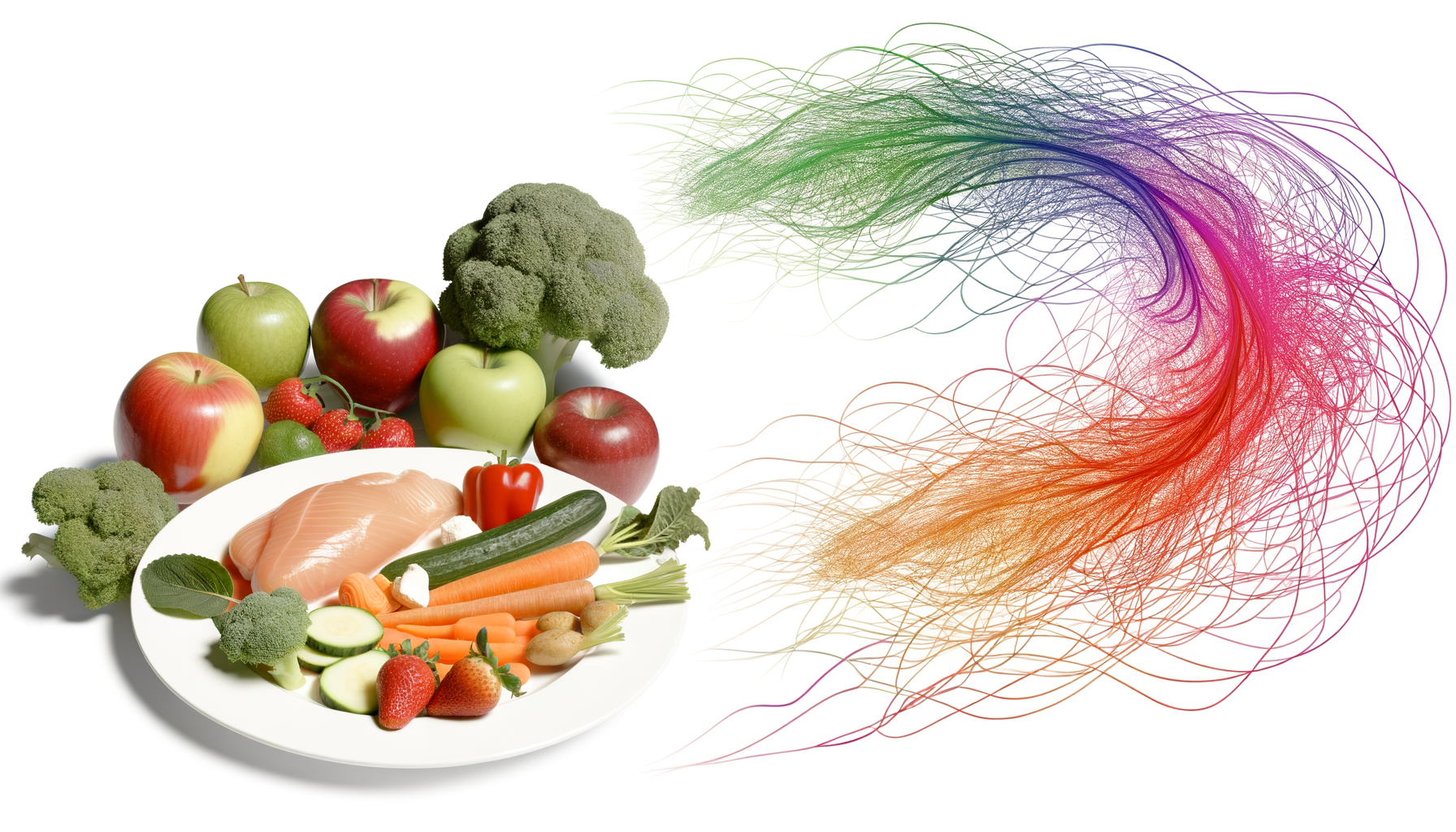Understanding the Lymphatic System and Its Dependency on Calorie Quality
The lymphatic system is a vital component of our overall health, playing a crucial role in immune support, detoxification, and the maintenance of fluid balance within the body. One often overlooked aspect of lymphatic health is the impact of calorie quality on its functioning. In this article, we will delve into the importance of calorie quality and how it affects the lymphatic system.
The Role of the Lymphatic System in Health
The lymphatic system is an intricate network of vessels, nodes, and organs that work together to remove toxins, waste, and other unwanted substances from the body. It is essential for maintaining fluid balance, fighting infections, and absorbing fats from the digestive system.
Key Functions of the Lymphatic System
- Fluid Balance: The lymphatic system helps maintain the balance of fluid between the blood and tissues, preventing conditions such as edema.
- Immune Support: It supports the immune system by producing white cells called lymphocytes, which form antibodies to defend the body against viruses and bacteria.
- Detoxification: The lymphatic system filters lymph fluid in the lymph nodes, removing bacteria, viruses, damaged cells, and other waste products.
The Impact of Calorie Quality on Lymphatic Health
The quality of the calories we consume has a significant impact on the health and functioning of the lymphatic system.
Quality of Fats
The type of fats we consume is crucial because all dietary fats are absorbed by the lymphatic system before being transmitted into the bloodstream. High-quality fats, such as those found in extra virgin olive oil, are essential for maintaining a healthy lymphatic system. In contrast, poor-quality fats, like those from processed foods, can clog the lymphatic vessels and hinder the absorption of nutrients.
Dietary Choices and Lymphatic Health
A diet rich in fruits, vegetables, whole grains, and lean proteins supports the detoxification process and promotes lymphatic health. On the other hand, a diet high in processed foods and excess sugar can lead to inflammation and impede the lymphatic system’s ability to remove toxins.
The Role of Hydration
Hydration is critical for lymphatic health. Adequate fluid intake helps keep the lymphatic system functioning properly. The U.S. National Academies of Sciences, Engineering, and Medicine recommend about 15.5 cups (3.7 liters) of fluids for men and about 11.5 cups (2.7 liters) for women, with about 80% of this fluid coming from water.
Exercise and Physical Activity
Exercise is a key factor in maintaining lymphatic health. Physical activity helps squeeze lymph fluid through the vessels, promoting circulation. Deep breathing exercises and gentle stretching also contribute to improved lymphatic flow.
Lifestyle Modifications for Optimal Lymphatic Health
To support lymphatic health, several lifestyle modifications can be implemented:
Exercise and Physical Activity
Regular exercise, such as walking, running, or any form of physical activity, is essential for stimulating lymph circulation. Activities like yoga, tai chi, or dance that involve rhythmic movements are particularly beneficial.
Deep Breathing Exercises
Deep breathing exercises help expand the diaphragm, which in turn activates the lymphatic system and promotes lymphatic flow. Incorporating deep breathing into your daily routine can significantly support lymphatic health.
Sauna and Aromatherapy
Using a sauna and aromatherapy oil massages can also stimulate lymph circulation, particularly in the limbs. These methods can help reduce toxin accumulation and improve overall lymphatic function.
Dietary Changes
Following a detoxification-friendly diet that is rich in fruits, vegetables, whole grains, and lean proteins is crucial. Avoiding processed foods and excess sugar helps in reducing inflammation and supporting the lymphatic system’s detoxification process.
Case Studies and Real-World Examples
The Ketogenic Diet and Lymphatic Health
Research has shown that the ketogenic diet, which is high in healthy fats, moderate in protein, and low in carbohydrates, can be beneficial for individuals with lymphatic conditions such as lymphedema and lipedema. This diet helps in reducing obesity, which is a significant factor in lymphatic fluid congestion and the progression of lymphatic diseases.
Lymphatic Detoxification Therapy
Lymphatic detoxification therapy, which uses a glass wand containing inert gases to stimulate lymph circulation, has been shown to reduce inflammation, muscle fatigue, and swelling. This therapy is particularly beneficial for health enthusiasts and cancer patients.
Conclusion and Next Steps
Maintaining a healthy lymphatic system is crucial for overall health and well-being. By focusing on the quality of the calories we consume, staying hydrated, exercising regularly, and incorporating deep breathing and gentle stretching into our daily routines, we can significantly support our lymphatic health.
For those looking to optimize their diet and lifestyle for better lymphatic health, tools like the Calorie Calculator Cloud can be invaluable. This resource helps in tracking and managing calorie intake, ensuring that the quality of the calories consumed supports overall health and well-being.
Incorporating these strategies into your lifestyle can lead to improved immune function, better detoxification, and enhanced overall health. Start your journey towards optimal lymphatic health today by making informed dietary choices and adopting a healthy lifestyle.
If you are interested in learning more about how to manage your calorie intake effectively, you can explore the Calorie Calculator Plans to find a plan that suits your needs.








